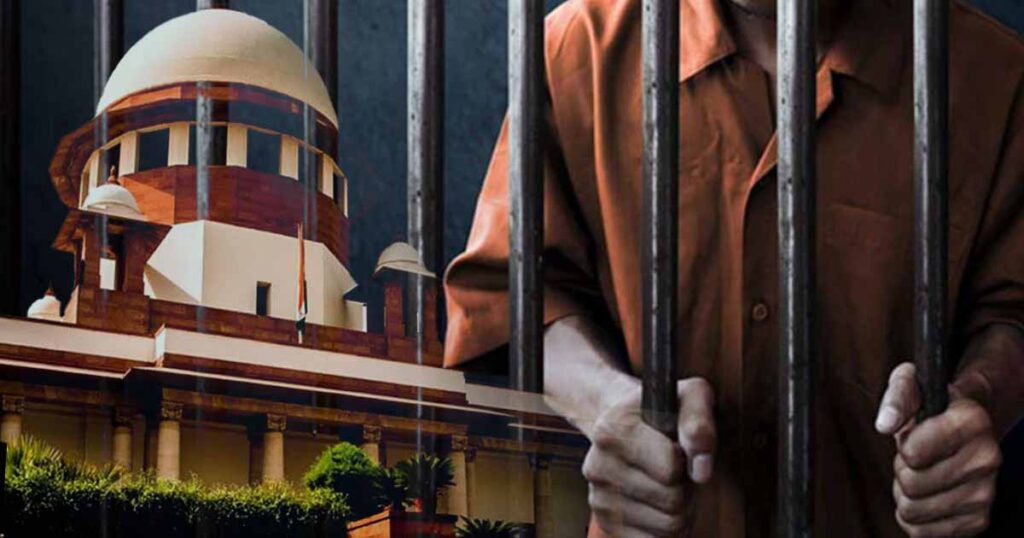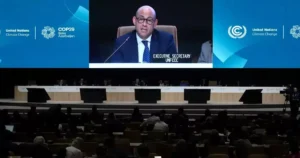In a landmark statement, the Supreme Court of India has reiterated the urgent need to release eligible undertrial prisoners in order to alleviate the escalating problem of overcrowding in the country’s prisons. The Court’s emphasis on addressing the inhumane conditions faced by undertrials has sparked a critical discussion about the flaws in the Indian criminal justice system and the pressing need for reform.

As of now, a significant percentage of India’s prison population consists of undertrials—individuals who have been accused of crimes but are still awaiting trial. Many of these individuals are incarcerated for extended periods without a conviction, sometimes facing years of detention before their cases are even heard. This alarming reality has raised questions about the fairness of the judicial process and the human rights violations that stem from prolonged detentions.
This article explores the Supreme Court’s directive, the underlying causes of overcrowding in Indian jails, and the broader implications of this issue for the criminal justice system in India.
The Supreme Court’s Stance: A Call for Reform
The Supreme Court’s recent statements come at a time when India’s prisons are dealing with significant overcrowding, often far exceeding their capacity. According to reports, undertrials make up a substantial portion of the overcrowded prison population, with many being held without sufficient legal proceedings. The Court has been vocal about the violation of human rights in such situations, underscoring the importance of upholding the principle of presumption of innocence.
1. Conditions of Undertrials in Indian Jails
- Overcrowding: A critical issue plaguing Indian prisons is overcrowding, with some jails operating at over 150% of their intended capacity. This leads to unhygienic conditions, lack of privacy, and limited access to basic services such as healthcare and sanitation.
- Inhumane Treatment: Many undertrial prisoners experience physical and mental abuse due to the overcrowded conditions. Reports of inadequate food, lack of medical care, and delays in legal proceedings are common, violating their fundamental rights.
- Prolonged Detention: Undertrials often face years of detention without being convicted, which is contrary to the principle of a speedy trial enshrined in India’s constitution. In many cases, prisoners are stuck in the judicial process due to delays, insufficient legal representation, or inadequate resources.
2. Focus on Eligible Undertrials
- The Court has emphasized the release of undertrials who meet specific eligibility criteria, such as those who have been in jail for extended periods without trial or those who are awaiting trial for offenses that carry a lesser punishment.
- The criteria for release have been set to prioritize justice, focusing on prisoners who pose no threat to public safety and have already spent a significant amount of time in jail without conviction.
Factors Contributing to Overcrowding in Indian Prisons
The overcrowding of Indian jails is not a new issue, but it continues to worsen due to a variety of factors, including:
1. Slow Legal Process
- The prolonged process of investigation, trial, and court hearings often leads to delayed justice. With a shortage of judges, inadequate infrastructure, and the sheer volume of pending cases, many undertrials languish in jail while awaiting their day in court.
- The judicial backlog in India is immense, with millions of cases pending across various levels of the court system. The delayed trials mean that undertrials—many of whom may eventually be acquitted—spend years behind bars without a final verdict.
2. Bail System and Eligibility for Release
- In many instances, individuals who are eligible for bail do not have the means or resources to secure their release. Many undertrials are poor and lack the financial capability to pay bail or hire legal representation, leaving them trapped in jail despite having non-violent charges.
- While the Court has stressed the need to release such prisoners, there remains a lack of effective mechanisms for ensuring timely and fair access to bail.
3. Overburdened Prisons
- India’s prison system, despite improvements in recent years, is still ill-equipped to handle the growing number of prisoners. Many jails are in dire need of infrastructural upgrades, and a lack of proper facilities exacerbates overcrowding.
- Prisons are designed to house convicted criminals, but with an increasing number of undertrials being incarcerated for long periods, the facilities become stretched thin, which compromises both safety and rehabilitation efforts.
Human Rights Concerns: A Growing Crisis
The inhumane conditions of undertrials in Indian jails have raised significant human rights concerns both domestically and internationally. Prolonged detention without trial is a violation of the right to personal liberty as guaranteed by the Indian Constitution.
1. Violations of Rights and Dignity
- Undertrials are entitled to a fair trial and to be treated with dignity, but the current system often denies them these basic rights. Many undertrials, particularly in overcrowded jails, face violations ranging from physical abuse to denial of basic necessities such as food, water, and medical care.
- The United Nations’ Standard Minimum Rules for the Treatment of Prisoners, known as the Nelson Mandela Rules, outline the international standards for the treatment of prisoners. Many Indian jails fall short of these standards, exacerbating the human rights crisis.
2. Mental and Physical Health Impacts
- The prolonged confinement of undertrials, especially in unsanitary conditions, leads to significant mental and physical health problems. Psychological stress, anxiety, depression, and trauma are common among prisoners who have been incarcerated for years without trial.
- Inadequate medical care and a lack of access to treatment for diseases further exacerbate health concerns, contributing to deteriorating physical conditions that can lead to avoidable deaths.
Government and Judicial Actions: Seeking Solutions
The Supreme Court’s statement has prompted discussions about the reforms needed in the criminal justice system. Several measures have been proposed to address the issue of undertrial detention:
1. Expedited Trials and Legal Reforms
- The Supreme Court has recommended steps to expedite trials, particularly for undertrials who have been in custody for prolonged periods. The establishment of fast-track courts to deal with undertrial cases and cases with less serious charges has been suggested.
- There is also a need for structural reforms to improve the functioning of the judicial system, increase the number of judges, and reduce case backlogs to ensure timely justice.
2. Bail and Legal Aid Reforms
- The Court has called for better access to legal aid and more efficient bail mechanisms, ensuring that those who are eligible for bail do not remain incarcerated due to a lack of financial resources or proper legal representation.
- Strengthening the bail system, including clear guidelines on who should be granted bail and when, could help reduce the number of undertrials in prison.
3. Improving Prison Conditions
- The Indian government is also under pressure to improve the conditions of prisons. This includes ensuring better sanitation, providing adequate healthcare, and upgrading infrastructure to reduce overcrowding and enhance the safety and well-being of inmates.
Conclusion: A Step Toward Justice and Reform
The Supreme Court’s call for the release of eligible undertrials is a critical step toward reforming India’s criminal justice system and addressing the serious issue of overcrowding in jails. However, for lasting change, it is essential that the judicial, legislative, and executive branches work together to overhaul the current system, expedite trials, improve bail access, and create humane conditions for all prisoners.
If the recommendations of the Court are implemented effectively, India could take a significant step forward in ensuring justice, fairness, and human dignity within its prisons.






